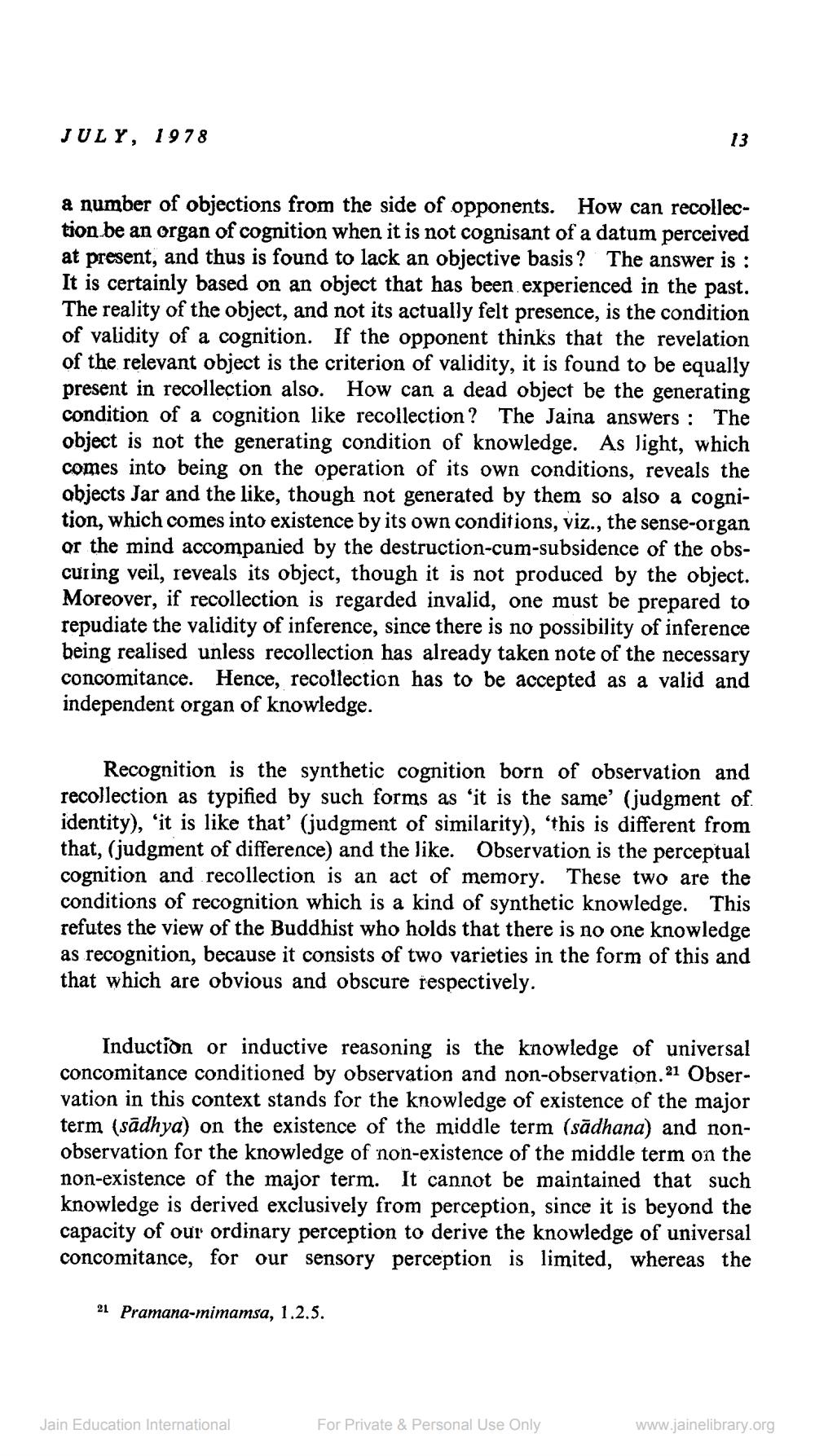________________
JULY, 1978
a number of objections from the side of opponents. How can recollection be an organ of cognition when it is not cognisant of a datum perceived at present, and thus is found to lack an objective basis? The answer is : It is certainly based on an object that has been experienced in the past. The reality of the object, and not its actually felt presence, is the condition of validity of a cognition. If the opponent thinks that the revelation of the relevant object is the criterion of validity, it is found to be equally present in recollection also. How can a dead object be the generating condition of a cognition like recollection? The Jaina answers: The object is not the generating condition of knowledge. As Jight, which comes into being on the operation of its own conditions, reveals the abjects Jar and the like, though not generated by them so also a cognition, which comes into existence by its own conditions, viz., the sense-organ or the mind accompanied by the destruction-cum-subsidence of the obscuring veil, reveals its object, though it is not produced by the object. Moreover, if recollection is regarded invalid, one must be prepared to repudiate the validity of inference, since there is no possibility of inference being realised unless recollection has already taken note of the necessary concomitance. Hence, recollection has to be accepted as a valid and independent organ of knowledge.
Recognition is the synthetic cognition born of observation and recollection as typified by such forms as it is the same' (judgment of. identity), 'it is like that (judgment of similarity), this is different from that, (judgment of difference) and the like. Observation is the perceptual cognition and recollection is an act of memory. These two are the conditions of recognition which is a kind of synthetic knowledge. This refutes the view of the Buddhist who holds that there is no one knowledge as recognition, because it consists of two varieties in the form of this and that which are obvious and obscure respectively.
Induction or inductive reasoning is the knowledge of universal concomitance conditioned by observation and non-observation. 21 Observation in this context stands for the knowledge of existence of the major term (sādhya) on the existence of the middle term (sādhana) and nonobservation for the knowledge of non-existence of the middle term on the non-existence of the major term. It cannot be maintained that such knowledge is derived exclusively from perception, since it is beyond the capacity of our ordinary perception to derive the knowledge of universal concomitance, for our sensory perception is limited, whereas the
21 Pramana-mimamsa, 1.2.5.
Jain Education International
For Private & Personal Use Only
www.jainelibrary.org




